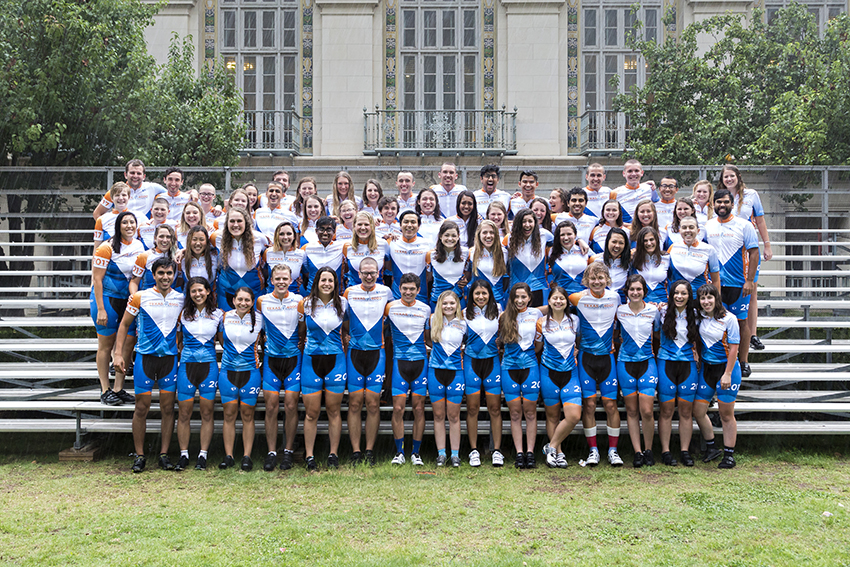On June 2, 70 UT students departed on a journey of nearly 4,100 miles from Austin, Texas, to Anchorage, Alaska.
The riders, members of UT student organization Texas 4000, will take three different routes: 24 will pass through the Sierra Mountains, 25 through the Rockies and 21 through the Ozarks. But they all have the same mission — to spread hope and cancer awareness in search of a cure.
Biomedical engineering junior Katie Goodfellow joined a biomedical engineering research lab around the same time she was accepted to ride for 2017.
“Being both a rider and biomedical engineering student is really special because one enriches the other,” Goodfellow said. “Not only do I get to ride for my family and friends affected by cancer, but I also get to ride for my professors and their dedication to finding a cure.”
Texas 4000 awards yearly seed grants to two biomedical engineering labs that are researching new cancer treatments or detection methods. Many of the riders are invested in both the human and research sides of cancer.
Biology senior Prem Patel has served the past three summers as a research assistant in cancer biology labs at both the UT Southwestern Medical Center and UT-Austin.
“Cancer research often involves exploring unaddressed avenues, or combinations of previously tested methods, which is a very expensive endeavor,” Patel said.
The Texas 4000 investment in funding to research at MD Anderson, Dell Medical School, the UT Biomedical Engineering Department and UT Southwestern is essential for helping accelerate promising projects to proceed to clinic and ultimately to act as a cure, Patel said.
Katie Russell, a public relations and radio-television-film senior, said the Texas 4000 commitment to research fundraising gives her hope that the funds raised will contribute to a cancer-free world.
This year, biomedical engineering assistant professors Tim Yeh and Hyun Jung Kim received Texas 4000 grants.
Yeh said he plans to use the funding to develop biomarkers for prostate cancer prognosis and generate preliminary data to compete for further National Institutes of Health and Cancer Prevention and Research Institute of Texas grants.
“The biggest problem in prostate management is overdiagnosis and overtreatment … new biomarkers will help alleviate burdens not only to patients but also to clinical care providers,” Yeh said.
Kim said he will develop a microchip model for colorectal cancer that will allow researchers to test the cells of individual patients. It will simulate an environment with stimulants or toxins surrounding colon cancer cells and see the response. He said the chip has the potential to tailor cancer therapies at a personal level.
Texas 4000 Chris Condit started the nonprofit organization when he was an electrical engineering undergraduate in 2004. He became inspired after experiencing Hodgkin’s lymphoma, a form of pediatric cancer, firsthand when he was a child.
“I just felt like I had to give back to that community,” Condit told the Daily Texan in April.















